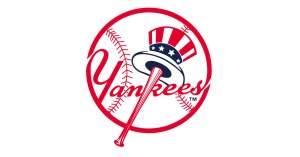Sports fans that live far from their favorite teams have a difficult time watching games. I discovered this in the 90s when I was a Seahawks fan living in Colorado. The agreements between regional sports networks, the teams, and television service providers make it extremely difficult for out-of-market fans to access games. Baseball and hockey fans, however, are currently trying to fix this. Out-of-market fans won a small victory this past May when Judge Shira A. Scheindlin of the United States District Court for the Southern District of New York granted a motion for a class action certification.
The cases, Garber v. MLB and Laumann v. NHL, are antitrust challenges to sports broadcasting. Plaintiffs in both cases are challenging the multilateral agreements between the leagues (MLB and NHL), regional sports networks (“RSNs”), and multichannel video programming distributors (“MVPDs”)—DirecTV and Comcast—“that limit options, and increase prices, for baseball and hockey fans that want to watch teams from outside the home television territory (“HTT”) where the fans live.” Fans, who live in cities far from the teams they love, must purchase out-of-market packages that broadcast all games outside of the market. Furthermore, because of the exclusivity of networks such as the Yankees Entertainment Sports Network (“YES”) and other similar team-specific networks, often fans that have purchased out-of-market packages still cannot watch their favorite teams.
Judge Scheindlin uses a Yankees fan in Iowa as the model for consumers who are suffering harm because of this set-up. For example, YES has both content exclusivity and game exclusivity. Under IP rights, Judge Scheindlin points out, it is not anticompetitive for the network to have rights to the content it produces. However, because of the multilateral territorial agreements between the teams, the RSNs and the HTTs, any game in which the team plays will be blacked out outside of the territory unless an out-of-market package including all games is purchased. This means that even though a Yankees fan in Iowa may have purchased a cable package that includes YES, if the Yankees game is broadcasted only on the YES, because she is not in the YES territory, the games will still be blacked out. What seems to be missing is a direct distribution system from regional sports networks to out-of-market consumers.
Plaintiffs are challenging the territorial exclusivity in these multilateral agreements. If the territorial agreements are ruled anticompetitive, then the game exclusivity issue would evaporate since the existence of game exclusivity relies upon the existence of territorial exclusivity. The ultimate goal, for Plaintiffs, appears to be a model that allows for RSNs to sell “a la carte channels” directly to out-of-market consumers.
Two classes were certified under FRCP 23(b)(2) back in May: (1) consumers who purchased out-of-market packages through a television service provider and (2) consumers who purchased out-of-market packages online. The certification of these classes combined with the language in the opinion, validates the Plaintiffs’ position. Defendant regional sports networks argue that the current set-up is what allows them to broadcast the games at all.
Since the class certification, Laumann v. NHL has settled. However, Garber is still trucking along slowly. Yankees fans in Iowa can look toward the future with hope in their eyes: a day may soon come when they can finally watch all the Yankees games without having to travel all the way to New York.
Image source: http://newyork.yankees.mlb.com.
